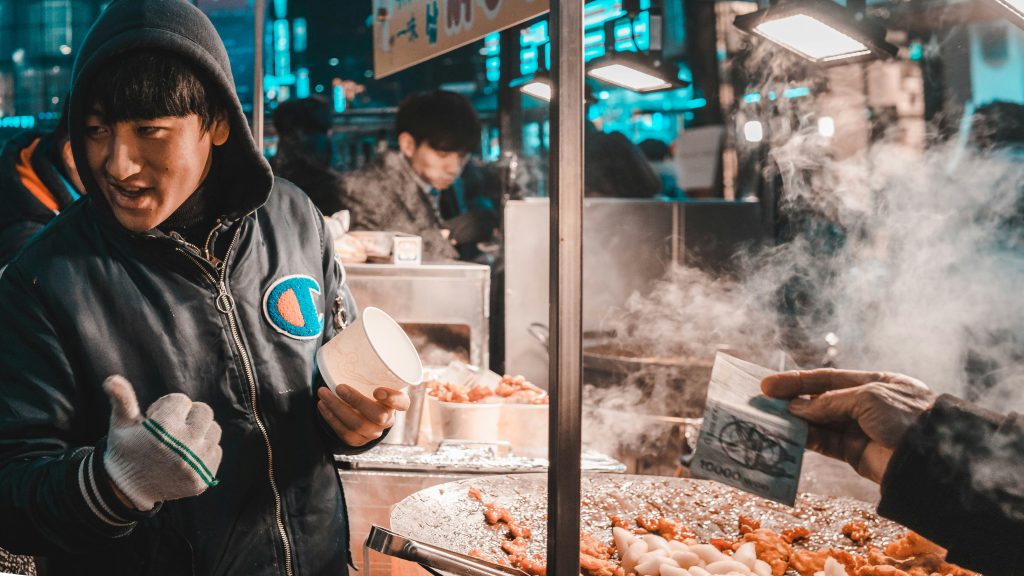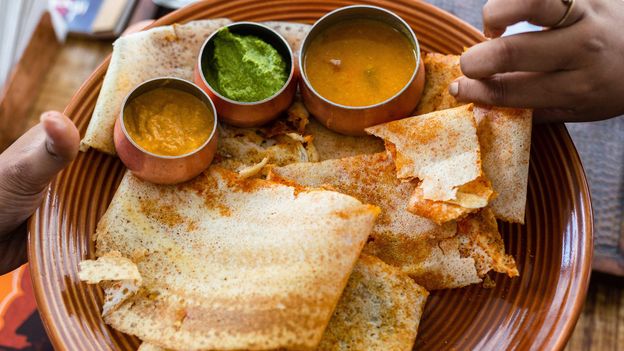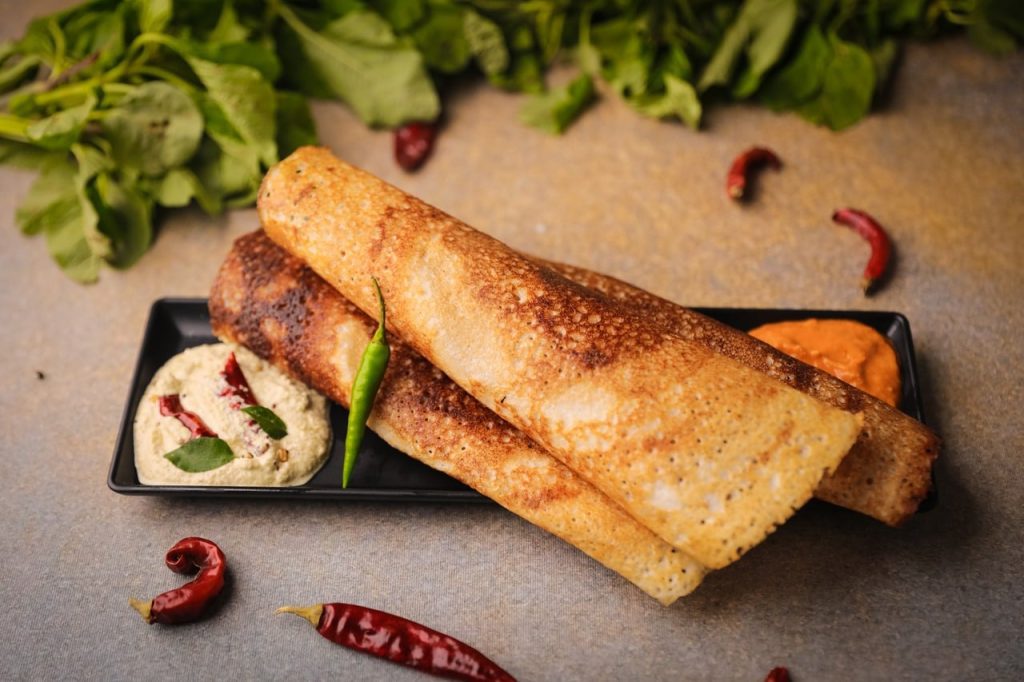Learn about Can I Eat Masala Dosa During Fever. Discover if eating masala dosa during a fever is advisable. Learn about its effects, benefits, and potential adjustments for recovery.
Introduction
Masala dosa is one of the popular traditional delicacies, which is loved by many people because of its strange characteristics of taste and feeling. It comprises a thin, crispy pancake made from fermented rice and lentil batter, stuffed with spiced mashed potatoes. On the hot griddle, the thin batter is spread to create a crispy exterior and soft inside. With mustard seeds, curry leaves, turmeric and more spices added to it the potato filling provides a salty contrast.
Usually accompanied by coconut chutney and sambar (a pulse-oriented vegetable stew), masala dosa is not just a breakfast dish but savored all day long. It is a fulfilling dish since it contains equal parts of carbohydrates, proteins, and spices; however, it may not appeal to everyone due to its heavy spicy flavor especially when they are sick.

Can I Eat Masala Dosa During Fever?
In case of fever, masala dosa can be consumed sparingly. This food is rich in carbohydrates which acts as an energy provider when one feels weak. The spicy potato fill-up and the oil content may irritate your stomach and be difficult for you to digest when you are not well.
In case you pick masala dosa, use less spices and oil when preparing it. Choose a lighter variant of sambar and chutney to accompany it. On the other hand, you may go for idli and rice porridge which is easier on your stomach. Masala dosa can bring solace but at times, we must obey our bodily instincts and go for the food that suits us most in the course of healing.
Pros of Eating Masala Dosa During Fever:
- Energy Source: Carbohydrates, which masala dosa has in abundance, can quickly provide energy when one feels weak and tired from having a fever. This can be helpful when you have lost your appetite but want something that is both filling and pleasurable.
- Fermented Benefits: Fermentation of batter has been shown to improve its nutritional value by increasing the availability of nutrients. When the body has a strong fever-related reduction in its digestive power, fermented foods can help strengthen digestion by introducing helpful bacteria into the intestines.
- Comfort Food: Masala dosa happens to be a well-known and tasty food that will provide pneumonia and head cold comfort. At times increasing your spirits and improving your mood mentally by eating something you like is what you need for healing.
Cons of Eating Masala Dosa During Fever:
- Spicy Filling: Masala dosas can contain a hot potato filling that can make your stomach discomforting especially if you are feeling nauseated or uncomfortable because of a fever. In addition, consuming them may worsen any inflammation in the body and increase acidity and indigestion.
- High in Oil: Masala dosa is commonly prepared using a large quantity of oil so that it becomes crispy. When one has a fever, the body may not be able to properly digest heavy and fat-rich things hence leading to discomfort in the stomach, bloating, and nausea. Besides this, oily foods also slow down digestion hence extending the sense of satiety and uneasiness.
- Potential Dehydration: When suffering from fever, spicy and oily dishes i.e. masala dosa may lead to dehydration; hence it’s a very serious issue. Increased fluids are required for your body to maintain its temperature as well as fight infections, therefore any diet that might aggravate the dehydration is not good. It is recommended that these lighter foods, which are also more hydrating, be taken instead.
Common Mistakes to Avoid When Eating Masala Dosa During Fever:
1. Overconsumption
Eating too much masala dosa can overwhelm your digestive system, especially when you’re not feeling well. Stick to a small portion to avoid bloating and discomfort. Larger quantities can be harder to digest and may exacerbate nausea or digestive issues.
2. Ignoring Spice Levels
Not altering the hotness of spices may pain your stomach as well as aggravate other signs. Thus, you must avoid or decrease any chilies in the dallops to be put inside the sa if you have fea ver since this will help in making it easier on the digestive system.

3. Skipping Hydration
Drinking insufficient fluids with masala dosa may cause dehydration. Drinking enough fluids and water alongside meals is important intoeep the body hydrated and support recovery.
Consuming Heavy Oil Eating dosa that is overloaded with oil brings about a lot of digestive discomfort and one is likely to feel like vomiting. An alternative way of making this meal easier on your stomach could involve using a very large amount of oil or switching to another cooking method.
FAQs
Are there better alternatives to masala dosa when I have a fever?
Certainly, alternatives such as rice porridge, idli, or clear soups are easier on the stomach and supply essential nutrients without overloading your digestive system. These choices are more considerate and can help you recover better.
Can eating masala dosa contribute to dehydration during a fever?
You may dehydrate by eating spicy and oily foods such as masala dosa, which is why it is important to drink plenty of water and consume light hydration that supports your body’s repair process.
Can the spices in masala dosa worsen my symptoms?
Indeed, the spices present in masala dosa may cause stomach upset as well as exacerbate other signs or symptoms experienced by an individual. Consequently, it is recommended that during fever episodes, there is a need to eliminate or minimize spicy items added to the potato mixture.
Conclusion
Although masala dosa is edible in fever, relaxations are unavoidable for easier digestion. Take mild fillings, put less oil in them, and use light sambhar in order not to have them on my stomach.
Check how your body reacts and opt for smaller servings. In such circumstances, during illness, in a state of uncertainty, or any adversities, it is better to opt for less spicy and softer food products such as idli and khichdi because they tend to have high water content. This will help you recover faster during illnesses since these foods are easily digestible and hydrating
